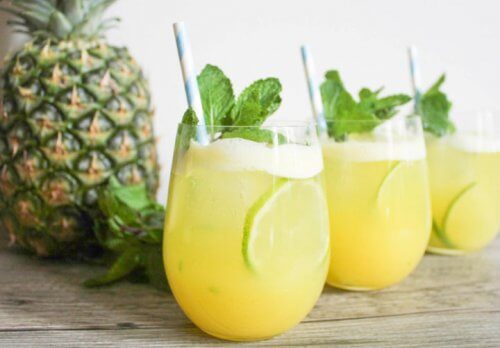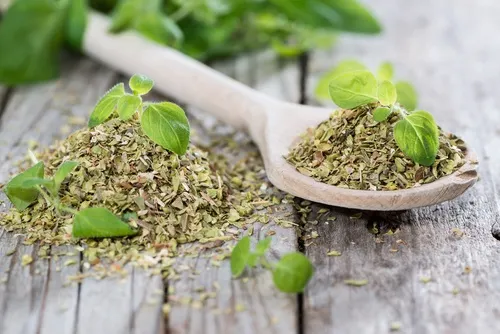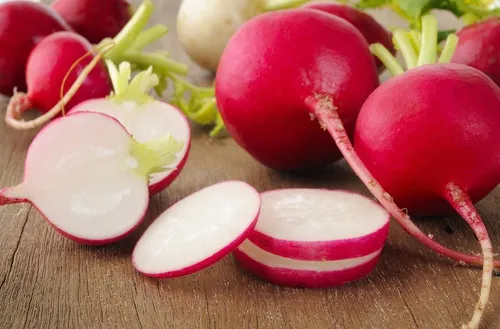7 Foods to Help Regulate Your Sodium and Keep Your Kidneys Healthy


Written and verified by psychologist Valeria Sabater
As strange as it may sound, sodium is in basically all the commercial, pre-cooked foods we eat on a daily basis. That includes store-bought juice and carbonated drinks. All that sodium can really take its toll on your kidneys, so its important to know how to regulate your sodium levels, and there are some foods that can help!
Having too much sodium can lead to high blood pressure. But it also has a lot of other potential effects, like bone, digestive, cardiovascular, or skin problems.
It’s always best to moderate your sodium intake, but that doesn’t mean you should eliminate it completely. The key, as with most things when it comes to diet, is moderation.
You can’t forget that sodium is very important in cellular metabolism. It plays a role in muscle contraction, and promotes the proper pH balance in our body.
Furthermore, you lose a good part of this mineral through your urine, feces and sweat.
So, the goal is to not consume too much, but to get enough that your body can still carry out its natural functions.
One great way to regulate your sodium levels for the sake of your kidneys is by making certain foods part of your diet. Today, we’re going to show you 7 of them.
Foods that can help you regulate sodium levels and keep your kidneys healthy
1. Pineapple
The main benefits of this delicious fruit are its diuretic and anti-inflammatory properties.
- It’s good for lymphatic circulation and is rich in copper and manganese. These two minerals help purify excess sodium in your body.
- Also, its bromelain and vitamin C content reduce the inflammatory processes which can happen with too much sodium build-up. An excessive build-up can cause major problems for your kidneys.
Always eat it fresh, so avoid pineapples that come in packaging. Also, just use your imagination and you can put add it to all kinds of meals.
You might like:
Easy, Effective Natural Remedies with Pineapples
2. Oregano

One way to reduce the amount of salt present in the bread you eat every day is to add a spoonful of olive oil with a little oregano to it. You’ll love the taste.
Plus, oregano contains beta-caryophyllene (E-BCP), a substance that prevents swelling and promotes blood circulation.
Don’t hesitate to always include it in your diet.
3. Strawberries
Regularly eating organic strawberries won’t just improve your kidney health. It can also reduce uric acid, bad cholesterol (LDL), blood pressure levels.
Just remember to always have them in their natural form. Strawberry jams and juices probably have tons of sodium, even though they’re so sweet and delicious you’d never think it.
Ripe strawberries, like ripe raspberries, are richer in flavonoids than any unripe or frozen ones you might find in the supermarket.
Don’t hesitate to take advantage when they’re in season and share the wonderful flavor and benefits with your whole family.
4. Artichokes
Artichokes balance your blood pressure thanks to their vitamins and low sodium content.
It’s great to have them with a little olive oil and lemon juice. This helps purify your liver and also takes care of your kidneys thanks to the acids, vitamins, and enzymes found in the combination of these foods.
5. Cilantro
Cilantro is a powerful natural diuretic that you can take advantage of by adding it to your soups or salad.
Its intense, unique flavor goes very well in certain dishes where it can act as a suitable substitute for salt.
It also helps bring down blood pressure, reducing the classic symptoms of high blood pressure, like headaches or migraines.
Read more:
6. Garlic
Do you already have garlic salt in your kitchen? If not, don’t hesitate to make this natural, effective remedy for high blood pressure. It’s a great way to regulate your sodium intake by using one of the foods that’s also good for your kidneys in general.
Garlic is a medicinal food that everyone should have in the kitchen. It acts as an antibiotic, reduces high blood pressure, and contains allicin, an enzyme that’s good for both heart and kidney health.
7. Radishes

Its secret lies in ethyl acetate, a compound that’s only beneficial if you get it naturally. Chewing on the raw vegetable and getting through its intense flavor is definitely worth it. Don’t forget about the health benefits!
As we pointed out in the beginning, the goal isn’t to avoid salt. What you want to aim for is to regulate your sodium consumption and choose fresher, more natural foods for the sake of your kidneys. In other words, choose for foods that make a healthy addition to your nutritional balance.
So, how does this sound? Following these tips means taking a step towards taking better care of yourself!
All cited sources were thoroughly reviewed by our team to ensure their quality, reliability, currency, and validity. The bibliography of this article was considered reliable and of academic or scientific accuracy.
- Macías-Giler, E., García-Murillo, J., Cisneros-Pérez, I., & García-Muentes, S. (2023). Evaluación de los métodos de extracción de curcumina de la cúrcuma (Curcuma longa). Revista Científica INGENIAR: Ingeniería, Tecnología e Investigación, 6(12), 128-163. https://journalingeniar.org/index.php/ingeniar/article/view/136
- Martínez-Pineda, M., Yagüe-Ruiz, C., & Vercet-Tormo, A. (2020). Is it possible to include potato in the diet of chronic kidney disease patients? New culinary alternatives for limiting potassium content. Journal of Renal Nutrition, 30(3), 251-260. https://www.jrnjournal.org/article/S1051-2276(19)30271-7/abstract
- Nachón, M. N., Arias, C., Nitsch Montie, C., Penny, E., Melgar Cuellar, F., Araya Fonseca, C., & Montúfar Guardado, R. (2023). Alimentación y riesgo cardiovascular. Medicina, 83, 4-6. https://www.scielo.org.ar/scielo.php?pid=S0025-76802023000100004&script=sci_arttext
- Olson, D. W., & Aryana, K. J. (2022). Probiotic incorporation into yogurt and various novel yogurt-based products. Applied Sciences, 12(24), 12607. https://www.mdpi.com/2076-3417/12/24/12607
- Panahi, Y., Kianpour, P., Mohtashami, R., Atkin, S. L., Butler, A. E., Jafari, R., Badeli, R., & Sahebkar, A. (2018). Efficacy of artichoke leaf extract in non-alcoholic fatty liver disease: A pilot double-blind randomized controlled trial. Phytotherapy research: PTR, 32(7), 1382-1387. https://pubmed.ncbi.nlm.nih.gov/29520889/
- Pienovi, L., Lara, M., Bustos, P., & Amigo, H. (2015). Consumo de frutas, verduras y presión arterial: Un estudio poblacional. Archivos latinoamericanos de nutricion, 65(1), 21-26. https://ve.scielo.org/scielo.php?pid=S0004-06222015000100003&script=sci_arttext
- Ponce, M., Ponce, D., Mariños, B., & Arteaga-Pazmiño, C. (2024). Plantas para tus riñones: una revisión narrativa sobre la dieta basada en plantas y la enfermedad renal crónica. Revista de Nutrición Clínica y Metabolismo, 7(1), 33-44. https://revistanutricionclinicametabolismo.org/index.php/nutricionclinicametabolismo/article/view/579
- Quesada, I., de Paola, M., Torres-Palazzolo, C., Camargo, A., Ferder, L., Manucha, W., & Castro, C. (2020). Effect of Garlic’s Active Constituents in Inflammation, Obesity and Cardiovascular Disease. Current hypertension reports, 22(1), 6. https://pubmed.ncbi.nlm.nih.gov/31925548/
- Sellarés, V. L., & Lopez, J. M. (2021). Hidratación en la enfermedad renal crónica. Nefrología al día. Sociedad Española de Nefrología. Consultado el 3 de enero de 2025. https://www.nefrologiaaldia.org/es-articulo-hidratacion-enfermedad-renal-cronica-93
- Zhang, Z., Miar, Y., Huyben, D., & Colombo, S. M. (2024). Omega‐3 long‐chain polyunsaturated fatty acids in Atlantic salmon: functions, requirements, sources, de novo biosynthesis and selective breeding strategies. Reviews in Aquaculture, 16(3), 1030-1041. https://onlinelibrary.wiley.com/doi/full/10.1111/raq.12882
This text is provided for informational purposes only and does not replace consultation with a professional. If in doubt, consult your specialist.








